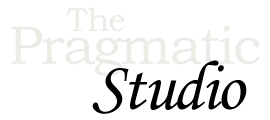Numbers and Strings
Exercises
Objective
Now that you know a bit more about numbers and strings, we'll start to add some players to the game. The goal of this exercise is to print out info about our initial player and a list of all the players. Here's the output we're shooting for:
larry's health is 60 Players: larry curly moe
1. Print Player Info
Each player has a name (a string) and an initial health value (an integer number). We need a way to remember a player's name and health so we can refer to them later on in the game. To do that, we'll need to assign the name and health values to variables.
Variables simply name things in our program. It's important to give the variables good names so it's easy to tell what they're referencing. Ruby has some variable naming rules: variable names can be a mix of letter and numbers (or an underscore), and the first character of a variable name must be a lowercase letter or an underscore.
For example, the first player's name could be stored in the variable
name1. Sometimes the best variable name has more than one word, in which case you
separate the words with an underscore. For example, a good name for a player's high score would be
high_score.
With that in mind, let's create our first player...
-
Go ahead and delete the code currently in your
studio_game.rbfile so you have a clean slate. -
The name of our first player is "larry" (he prefers the lowercase pronunciation). Create a variable to remember that name. In other words, assign the player's name to the variable.
-
Larry's initial health value is 60. Create a second variable and assign the health value to it.
-
Next, using those two variables, create the single-quoted string "larry's health is 60" and print it out to the console. Keep in mind that in a single-quoted string, you'll need to use a backslash to escape the apostrophe in the possessive form of the player's name.
-
Don't forget to run the program to check your work!
-
All that escaping and concatenation gets kinda tedious, doesn't it? This is a case where a double-quoted string would make things a lot easier. So change the single-quoted string to a double-quoted string and substitute (interpolate) the name and health values into the string.
-
Run the program to make sure you're getting the same output as before.
-
Now that you're getting the hang of it, give this a try: How would you change the double-quoted string to triple Larry's health?
-
OK, now what if you wanted to divide Larry's health by 9 and have the answer printed out with decimals (a float) or without decimals (an integer)?
-
Experimenting with code is a great way to learn, so play around a bit until you're comfortable.
2. Print a List of Players
In addition to being able to substitute the value of any Ruby expression into a double-quoted
string, double-quoted strings also support various escape sequences that start with a
backslash character. For example, you use \n for a newline character and
\t for a tab character. When a string is evaluated, Ruby looks for these escape
sequences and replaces them with their equivalent character.
-
Print out a list of players in the game formatted like this
Players: larry curly moe
Notice that each player's name is printed on a separate line and indented with a tab. There are at least two ways to do this. First try it without using any variables.
Then change it to use variables for each player's name.
-
Make sure to run your program file to check the formatting.
Solution
All the exercise solutions for the game app you're writing, as well as the example code for the movie app we're writing in the videos, is available for download in the code bundle file (right-click to save). No peeking until you try!
When you unzip the file, you'll end up with a directory named pragstudio-ruby-code. Inside that directory, you'll find two sub-directories: example-code and exercise-solutions. The code in each of those directories is organized into
directories matching the course modules.
The full solution for this exercise is in the
numbers-strings directory of the
code bundle.
Bonus Round
Start Creating a Third Ruby Program
For folks who want even more practice writing Ruby, here's an idea you could experiment with alongside the game program: a fundraising program. This program would track various projects (start-up projects, community projects, personal projects, etc.) and how much funding each project has received so far. For inspiration, check out Kickstarter, Pledgie, gofundme, or indiegogo.
At the end of each module, we'll include a list of fundraising program requirements for you to implement. Please consider these requirements as non-exhaustive guidelines for building this program. If you think something else should be added, changed, or removed, go for it! There are no right answers. Be creative, experiment, don't be afraid of error messages, and have fun trying new things!
To get started, create a new program (call it crowdfund, for example)
and print out info about your initial project and a list of all your projects. Something like:
Project ABC has $1000 in funding. Projects: Project ABC Project LMN Project XYZ
The solution for this bonus app exercise is in the
numbers-strings directory of the
code bundle.
Wrap Up
OK, now we have some players in the game. The game doesn't do much yet, but at least it's a start in the right direction. In the process, you got some practice and learned how to:
- use single and double-quoted strings
- concatenate strings
- mix strings and numbers
- use escape sequences
- evaluate (interpolate) Ruby code within a double-quoted string using
#{}
In the next section we'll spiff up the game's intro by creating objects and calling their methods!
